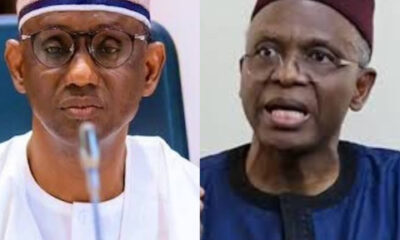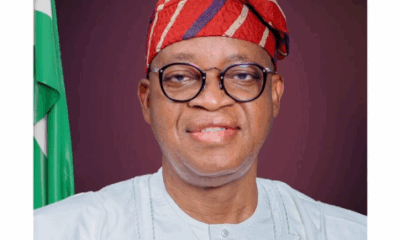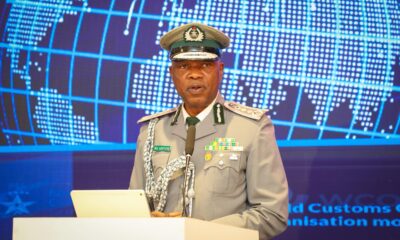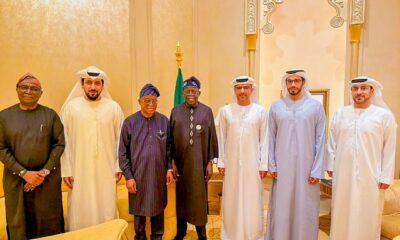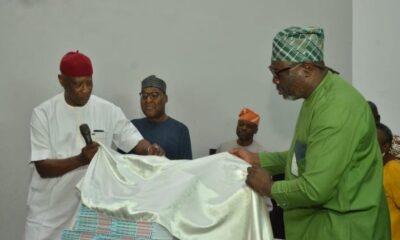Business Maritime
“Lack of Employment, Ineffective Laws Driving Maritime Crimes’ – Stakeholders
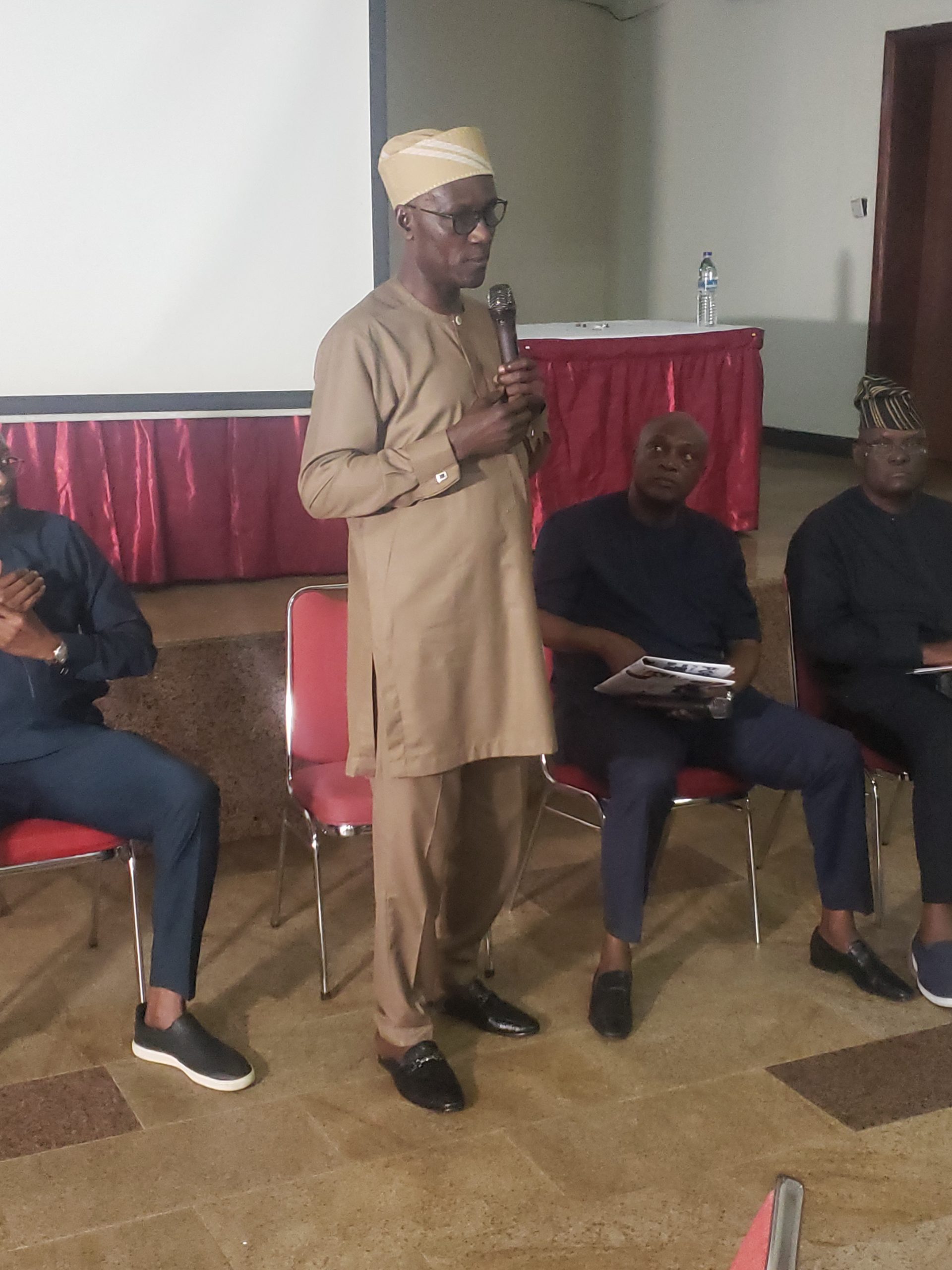
BY RUME ODJEGBA
Rising from a recent one-day workshop on the theme “Maritime Security: Emerging Threats and Actionable Steps”, industry stakeholders, analysts and observers have identified unemployed trained seafarers as largely responsible for the scale up in piracy attacks and related maritime crimes in the Gulf of Guinea (GOG).
Participants at the workshop also lamented that the regime of ineffectual law including the SPOMO Law and ISPS Code which they described as loose and without the force of law have so far made maritime crimes profitable and attractive.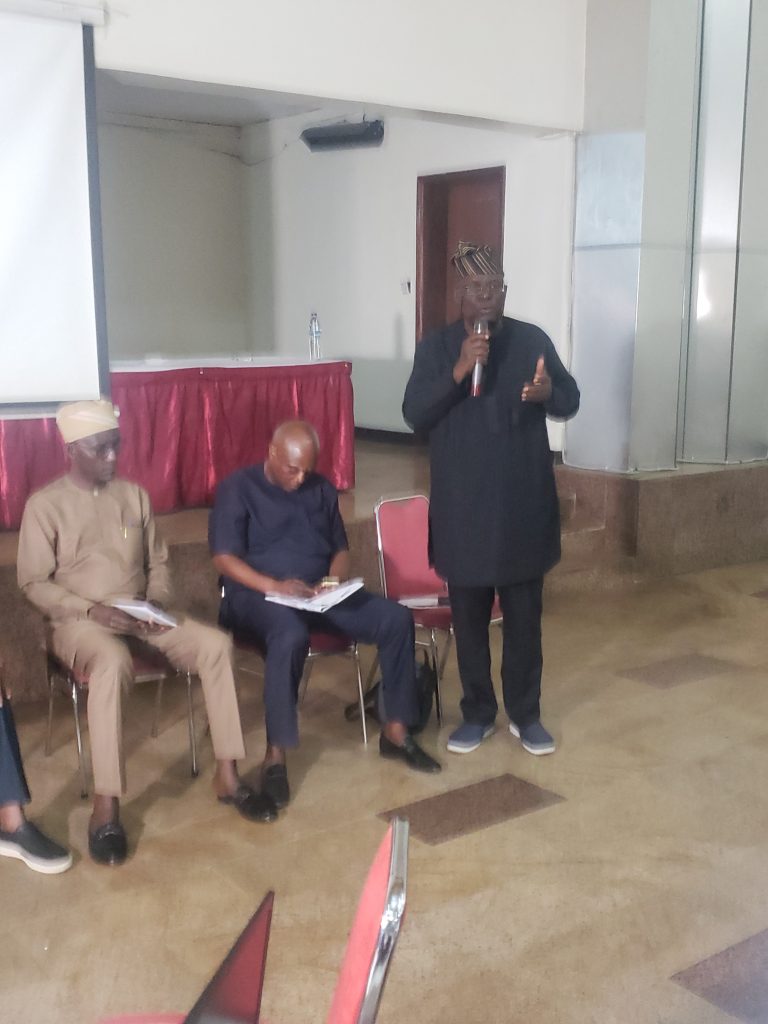
The workshop organized by the Maritime Reporters Association of Nigeria (MARAN) at the Rockview Hotel Apapa Lagos last week, tasked the federal government to emphasis focus on job availability as much as training in order to provide a balance for supply and demand as against the prevailing regime of churning out seafarers and navigational professionals without the job market to absorb them, a situation they argue may have forced many to take up the option of making a living through piracy and other maritime crimes such as pipeline vandalization and crude stealing and smuggling.
Firing the first salvo, veteran maritime journalist and former MARAN President, Mr. Sesan Onileimon said unemployed trained maritime and skilled personnel more than anyone else possesses the knowledge, competence and courage to venture into the sophisticated maritime crime space.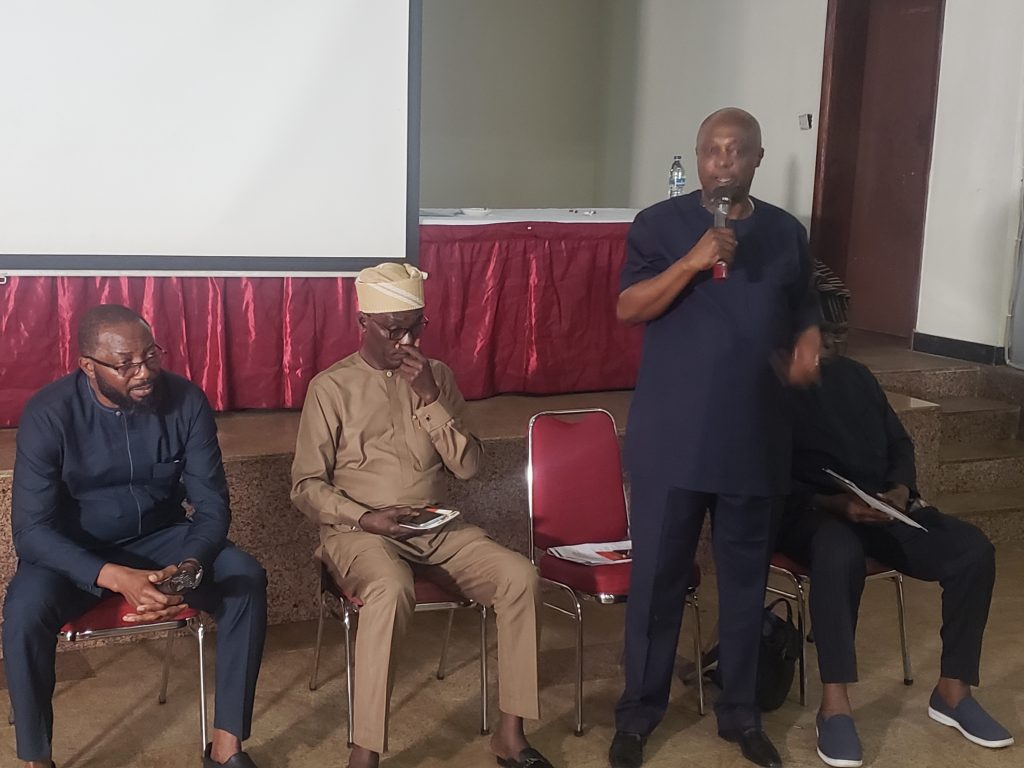
He said, “There’s a mass of unemployed youths that the society has foisted on us… an idle hand is a willing tool. And I will like to look at this from two angles, there are two categories of unemployed willing youths.
“The ones trained by NIMASA under its National Seafarers Development Programme, qualified with or without CoC but waiting to have something to do. They are there, they want to be active, they are the tools that are being used to foment trouble. The second leg are those boys and girls who are trained locally, some of them are trained at MAN Oron…but there are those that are trained even in Agege here who wear uniforms so much so like that of the Navy. They are equipped and recruited into that business that has turned out to be a source of threat to our maritime environment.
“I am saying this because in the course of my years as a maritime journalist, I have had course to interact with a few of them. If you go to Liverpool here…I am sure the Maritime Workers’ Union will bear me witness, the boys and girls who graduated from Oron and elsewhere have turned out to be canoe boys.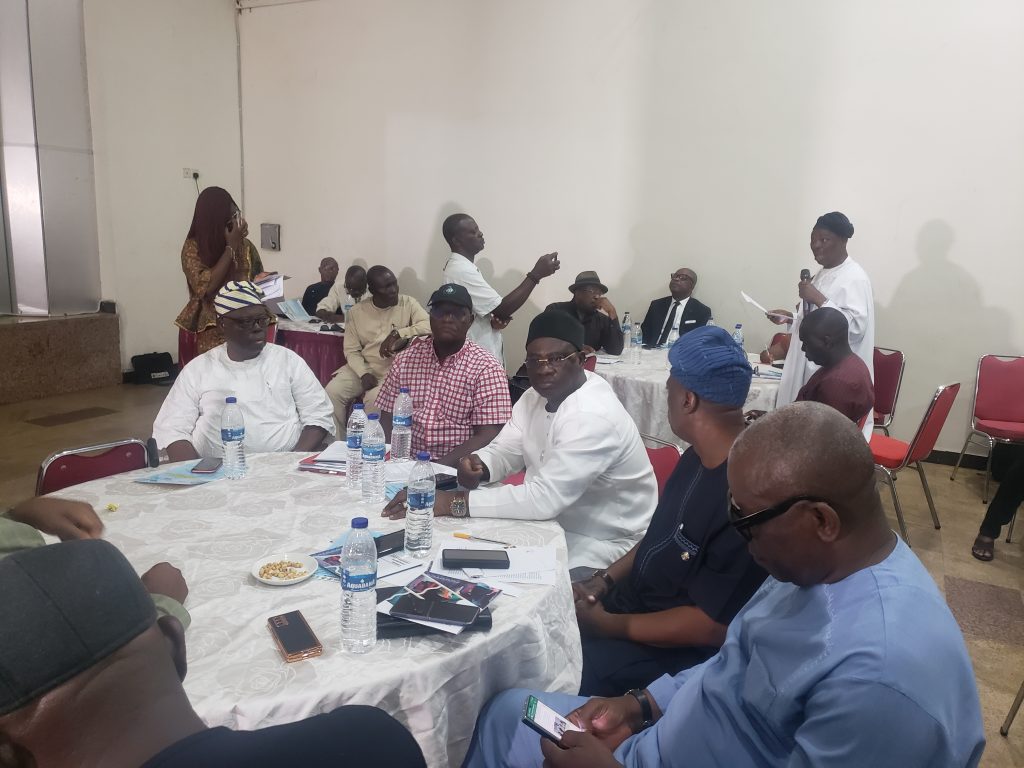
“They were not trained to be handling canoe and boats, but there is no job for them. These are the same boys who had five years of training but afterwards, there is no job. Take that guy to Niger-Delta, he is ready to do anything for as long as money is available”, he said.
Collaborating, President of Master Mariners Association of Nigeria (MMAN), Captain Tajudeen Alao described maritime crime as a big business, both locally and internationally; as he enjoined all interested parties to look at the matter holistically by way of providing workable solutions and deterrence.
While canvassing for stronger legislation to curb maritime crimes, he cautioned the federal government and the relevant agencies to avoid compounding the nation’s woes by burning arrested assets used in criminal activities; noting that such acts is inimical to our environmental and health safety.
“Whatever we think is the right thing to do, there must be procedures and guidelines and once the minister (of marine and blue economy) can make subsidiary legislation, it could go a long way in tackling most of these challenges. The trend now is…if you arrest a ship engaging in illegal bunkering, you blow it up, does it make sense?
“The air pollution into the sky, the oil pollution into the ecosystem, you have destroyed the fish in that area and the periwinkles. So, there are many things that we do, like my colleague said… you arrest a ship, EFCC don’t know how to manage the ship.
“The ship is there, they are waiting for the Police to go to court, the ship becomes a wreck, then, Nigerian Ports Authority and Nigerian Maritime Administration and Safety Agency will devote $2 million to salvage a ship that does is not worth more than $300,000.
“You need a deliberate action and political will to crush crime. The Navy cannot afford to fund maritime security just as it cannot afford to keep the ships at sea with the budget within its disposal hence it found it comfortable relying on the Nigerian Maritime Administration and Safety Agency to fund most of its operations”, Alao said.
Also speaking, President of the Nigerian Indigenous Shipowners Association (NISA), Otunba Sola Adewumi described recurring spike in piracy as artificially facilitated, arguing that the wherewithal and platforms to tackle piracy and other maritime crime activities are available, but that those in charge of the organs are not showing sufficient commitment to duty.
He said, “If any of you have had the opportunity of entering the Navy’s situation room known as the Falcon Eye, there’s nothing that happens at sea that they don’t see. What does Togo (Lome) have that we do not have in Nigeria? This is the question we should just ask ourselves. These people saw our weaknesses and made sure that their anchorage was secured.

“It attracts international operators and they started making money out of it. What is the work of our security agencies? And even when arrests are made, are they not made on frivolous excuses? All these things still go to say what is going to be the benefit to me. Until we put the benefit of the nation as overall, I think we are in a better position to protect our waters very well.
“But this era of entitlement…it is our entitlement…we must get it, I think it is part of the issues that we have. And as much as these things are there, we will continue to have a higher cost of bringing vessels to this place. I am of the opinion that if the security agents could work together and there is a good judicial system; I think that Nigeria can achieve a lot.”
Differing slightly, the President of Maritime Security Providers Association of Nigeria (MASPAN), Mr. Emmanuel Maiguwa think that more functional and efficiently run platforms as well as secured market share for ship owners are required to push down the maritime problems assailing the GOG.
“The issue of seafarers’ welfare is the last issue but the availability of platforms for you to work on is the bigger issue. And I want us to look at the structure of our maritime industry so we understand where the problem is. We have the oil and gas sector, which merely take services from the supply vessels. Now, in that particular market, even the owner of the vessel is struggling in the sense that his revenue is contract bound.
“You invest in about $30 million to buy a PSV in anticipation of a contract and because you flagged this PSV under Nigerian flag, the only chance of you getting employment for that vessel is contract with the IOCs. That contact can be suspended at any time and the moment they suspend, your opaque is usually about 30 to 40 percent of your revenue. That is what you will have to be paying for seafarers while your vessel is waiting for contract which may never happen.”
He also argued that NNPCL policies are creating avoidable deficits and constituting some of the operational encumbrances, in the overall.
“So, even if you are employed, the redundancy of that vessel is almost 30 percent, that will affect your opaque. So, already, the seafarers are not going to get the best of welfare. Now, the other alternative is the shipping but we are dead…shipping wise. That is the other market of maritime; we have gradually become a feeder shipping country.
“Apart from few companies that have tankers that can still go to Togo and load cargo only…because NNPC will not give you dollars except you load outside Nigeria. Now, these are the only opportunity the seafarers have today to be in the vessel other than non-service boats. So, you are basically at the mercy of NNPC. If you decide to buy a bulk carrier, what are you going to do with it? If you decide to buy tanker and say you want to trade internationally, is it going to be under Nigerian flag… and you are limited.
“If you put it under a foreign flag, your opaque is going to be very high that you cannot compete with your international counterparts because of the financial model that you used in acquiring your vessel.”
Maiguwa maintained that the opportunity that the maritime industry could create is massive but maintain that such is only possible when the right policies were put in place.
“Three people acquired tankers this year that I am aware of, but they flagged them Panama, they cannot flag it Nigeria because then, it will not trade international. So, we must really look into those areas where we can provide massive employment in the maritime industry beyond the foundation that people like Tantita (Tantita Security Services Limited) are doing because right now.”
Maiguwa also described the SPOMO Act and the ISPS Code as pieces of defective legislations that cannot respond to the task of crushing piracy attacks and other maritime crimes, because according to him, neither in their respective policy frameworks was designed to achieve such objectives.
Earlier in his welcome address, President of MARAN, Mr. Godfrey Bivbere said the recurring activities of piracy attacks and related maritime security threats in the GoG have become issues of serious concern.
“MARAN is also worried about observed dissonance in the collective national effort to combat maritime economic crimes and crude oil smuggling, and call on the federal government and its relevant agencies to improve on coordination. I want to also especially call on the office of the National Security Adviser to the President, to have a firmer grip and supervision of the existing collaboration between state and non-state actors’ roles, in this regard.
“We challenge the Nigeria Government and her regional counterparts to come up with a more workable and result oriented approach to the fight against maritime insecurity in the GOG. We believe that until and unless the international syndicates involved in the menace are confronted, apprehended and regularly exposed, through international collaboration as often happens with local criminals, the situation will not achieve any purposeful deterrence.”
While applauding President Bola Ahmed Tinubu for taking direct interest in the future of the maritime industry, he appealed to the president to focus much more on maritime insecurities.
“MARAN is unequivocal in its support for President Bola Ahmed Tinubu to turn around the fortunes of the nation’s maritime domain with the establishment of the Ministry of Marine and Blue Economy, which is sector specific. We envisage that President Tinubu may consider reworking the deterrence clauses contained in the SPOMO Act, to make its intendment more purposeful and business-like.

